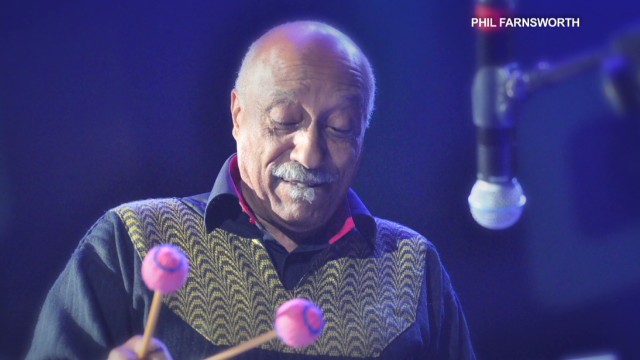 Ethio-jazz master Mulatu Astatke. (CNN)
Ethio-jazz master Mulatu Astatke. (CNN)
By Teo Kermeliotis
Wed September 17, 2014
Mulatu Astatke: Spreading Ethio-Jazz to the World
You’d expect a conversation with Mulatu Astake to be about music. He is, after all, the father of a musical genre: Ethio-jazz. But when he talks about the art form, he tends to focus on its scientific merits.
“When you start talking about jazz, they’re usually telling us that Africans contributed to the rhythm parts of jazz music, but it’s not only the rhythms. We have contributed to the science of jazz as well,” he says.
While innovators like Charlie Parker may get credit for the creation of modern jazz music by using diminished scales (as done in classical music by composers like Claude Debussy), Astake offers an alternative view:
“In southern Ethiopia, there are tribes called the Derashe — I call them the scientists of music. By cutting different size bamboos, [they] have been playing this diminished scale [for centuries]. So who first created it? Debussy, Charlie Parker, or the Derashe tribes?”
Unsurprisingly, I’m not the only one who’s been presented with such questions by Astatke, whose passion about Africa’s contribution to music extends back to the 1960s when he went on to fuse the traditional Ethiopian five-tone scales with western 12-note harmonies to give life to a whole new music genre: the hypnotizing and eerily seductive soundscape of ethio-jazz.
Read more at CNN »
—
Related:
Mulatu Astatke: The Man Who Created ‘Ethio jazz’
Join the conversation on Twitter and Facebook.

























